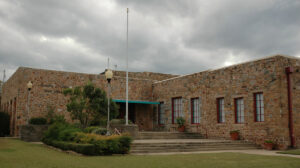
Most book ban battles are being fought on the local level at library board, school board, and city council meetings. That makes attending these meetings one of the most critical actions you can take to fend off book bans. Make sure local officials know you support the library and access to books of all kinds by attending, listening, and speaking out against censorship.
Most government and board websites post calendars and agendas for upcoming meetings, and some also livestream them. Even if book bans or collection policies aren't on the agenda, many boards and councils allow comments on issues of concern from any community member.
Our partners at PFLAG have created a helpful guide for speaking at library and school board meetings. The below has been adapted from their Plan to Testify at Local Board Meetings guide.
THINGS YOU NEED TO KNOW
Before you head to a board or city council meeting, you'll need to know the following:
-
- When and where will the meeting take place?
- The policy around public comments:
- Where do public comments fall in the agenda?
- How long do you have to speak during public comments?
- Do you have to register ahead of time to make a public comment?
- Are there any rules for the contents of comments?
- Is there a dress code or a code of conduct attendees are expected to follow?
IMPORTANT THINGS TO CONSIDER
Safety in numbers: gather supporters and encourage them to attend the meeting.
Prepare your remarks ahead of time so you know what you're going to say. Make use of the talking points in the UABB Action Toolkit.
BE INFORMED
Understanding why a book is being challenged is critical to speaking in its defense. As you make a plan to attend and speak at the meeting:
-
- Read the book that is being challenged.
- Understand what specifically about the book is making it a target for restriction or removal.
- Research other instances where the book has been challenged in other communities and the outcomes of those challenges.
Understanding why a book is being challenged is critical to speaking in its defense. As you make a plan to attend and speak at the meeting:
-
- Read the book that is being challenged.
- Understand what specifically about the book is making it a target for restriction or removal.
- Research other instances where the book has been challenged in other communities and the outcomes of those challenges.
AT THE MEETING
Introduce yourself: Mention that you are a constituent and any ties to your community.
Introduce and discuss the issue: Raise the topic you are there to discuss (book ban, library policy, library program, etc.).
Make it personal: Why does it matter to you? Does this issue affect your child? Yourself? Your community? Make sure you relate what you are asking for to a personal experience and a local need. Use your emotion to your benefit.
Make the ask: Ask for the board to reject any proposed censorship and uphold the First Amendment.
Thank them: Thank the board or officials for listening to and considering your comments.
BE READY FOR THE NEXT MEETING
Keep track of and make a plan to attend future meetings, and make sure your local network knows about them. Consistently showing up is key!
JOIN THE CAMPAIGN AND STAY CONNECTED
Stay alert with updates, tools, and future actions from the Unite Against Book Bans campaign to help you stay aware of and fight censorship efforts in your community.
Already signed up? Share with a friend or family member and help them sign up.
Every person who joins the campaign is one more voice to speak out when their community is threatened by censorship.
The information gathered will be used to share updates and calls to action; it will not be sold. By providing your contact information, you agree to receive news and updates from Unite Against Book Bans. View ALA's privacy policy for more information.


